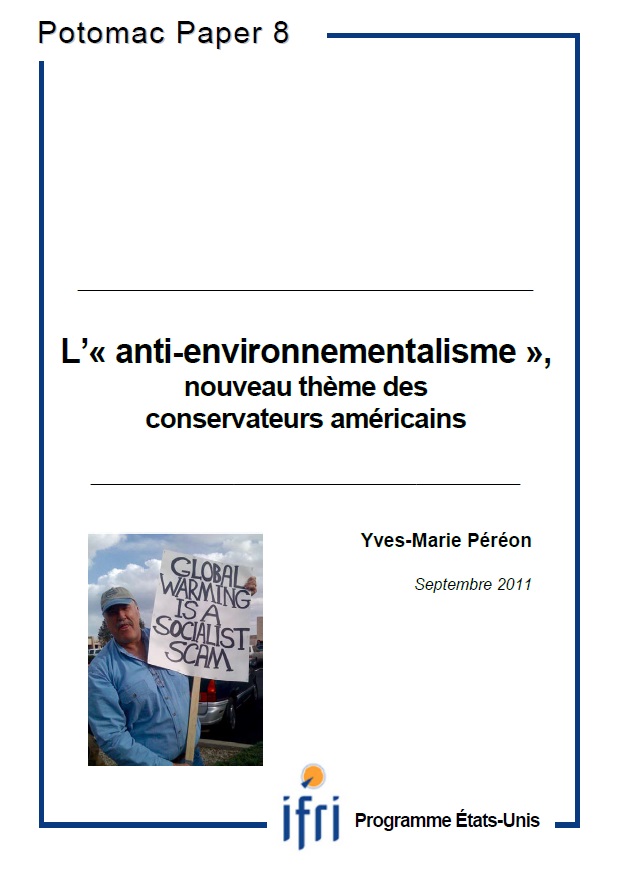L' "anti-environnementalisme", nouveau thème des conservateurs américains

Opposing environment protection policies has become a posture de rigueur for U.S. radical conservatives, especially in view of the 2012 campaign. This theme finds itself at the crossroads of several currents of American conservatism: a distrust of scientific elites, trust in the Manifest Destiny of the country, the defense of U.S. states and citizens against Washington and of the country as a whole against the rest of the World.
Opposing environment protection policies has become in recent years one of the favorite arguments expounded by radical conservatives in the U.S.
“Anti-environmentalists” as political activists do not endeavor to actively destroy the environment: they oppose the very notion of adopting public policies to protect it. The Environmental Protection agency (EPA) and the notion of climate change are the primary targets of the new crusaders.
Anti-environmentalism benefits from the strong dynamics of the Tea Parties, including their generous donors, as well as the backing of all conservative media and the snowballing effect of the internet.
One of the main explanations for the success of this new theme, however, is that it stands at the crossroads of several deep-seated currents of American conservatism: a populist distrust of intellectual and scientific elites, an absolute trust in the Manifest Destiny of the United States, the will to uphold states' rights against federal impingements, U.S. national sovereignty against World government, individual rights against Big Government and entrepreneurship against “socialism”.
Hoping to gain from the surge of the Tea Parties, many Republican politicians have made anti-environmentalism one of their leitmotivs, thus contributing to placing it amongst the major themes of the current national debate. This will probably shape the discussion on all environment issues during the Republican primary and the ensuing presidential campaign.
This content is available in French: L' "anti-environnementalisme", nouveau thème des conservateurs américains










